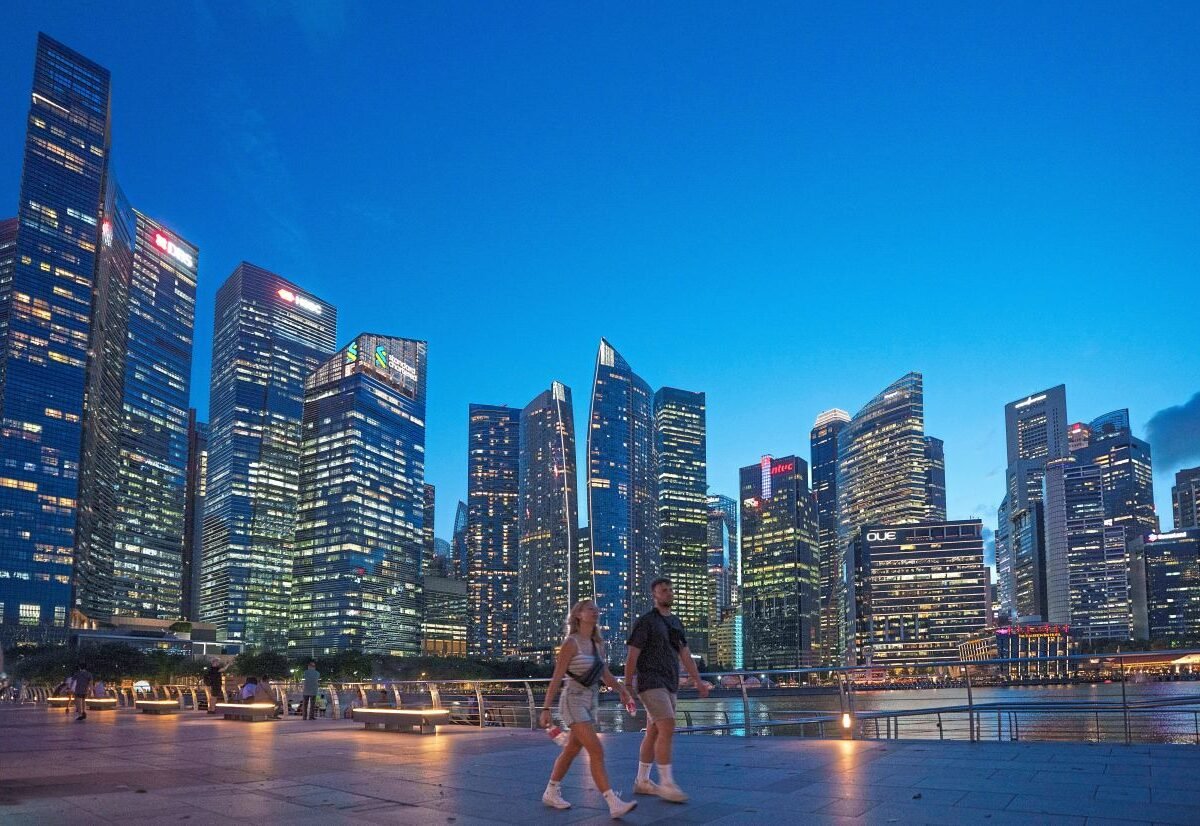SINGAPORE: Four Singapore Exchange (SGX) companies announced privatisation offers last week, taking the number of companies that have received such offers in 2025 to at least 11.
While most of the companies received offers from major shareholders citing poor trading liquidity as the main reason for privatisation, one firm – gaming hardware distributor Ban Leong Technologies – received an offer last week from a third-party acquirer with no prior relationship to the company.
Singapore gaming company Epicsoft Asia, a wholly owned subsidiary of Nasdaq-listed gaming giant GCL Global, on April 30 made an offer to take Ban Leong private for 60.29 Singapore cents a share in cash.
The offer price represents a premium of 60.8% over Ban Leong’s last transacted share price of 37.5 cents before the offer was made.
GCL Global’s chief executive Sebastian Toke said that the company sees strong strategic value in acquiring Ban Leong, citing its distribution strength in South-East Asia and growth in commercial and eCommerce segments as qualities not fully reflected in its share price.
“Both Epicsoft Asia and Ban Leong are born and bred Singapore firms with a strong presence in interactive entertainment software and gaming-related hardware, respectively, in Asia,” Toke said.
“The acquisition would combine the strengths of both companies in ways that would enable GCL to expand its global strategy in developing and marketing differentiated gaming products.”
Epicsoft Asia has already received irrevocable undertakings to accept the offer from Ban Leong’s managing director Ronald Teng Woo Boon and his wife Teo Su Ching, who together hold 28.13% of the company.
If Epicsoft Asia secures at least 90% of Ban Leong’s issued shares at the close of its offer, it can compulsorily buy the remaining shares at the same offer price from shareholders who have not accepted the offer.
Shares of Ban Leong jumped by more than 57% to close the week at 59 cents, their highest level since the company listed in June 2005.
The proposed acquisition of Ban Leong underscores the disconnect between public market valuations on SGX and the underlying strengths of many listed companies.
Despite demonstrating strong performance and growth potential, firms like Ban Leong remain undervalued, largely due to low trading liquidity and limited market visibility.
This valuation gap is attracting buyers like GCL Global, who are willing to pay a premium for quality assets that the market has overlooked.
It also raises questions about how SGX can better support fairer valuations and stem the pace of delistings, which has been accelerating.
In 2025 so far, at least nine companies have announced potential delistings.
They are SLB Development, PEC, Econ Healthcare, Sinarmas Land, ICP, Amara Holdings, Procurri Corp, Aoxin Q&M and Ban Leong.
The privatisation offers for Amara, Procurri Corp, Aoxin Q&M and Ban Leong all took place last week.
Amara, which received an offer from its bosses and developers Wing Tai and Hwa Hong, has already secured irrevocable undertakings from chairman Albert Teo and his family, who collectively hold 90.58% of Amara.
Meanwhile, shareholders of Japfa and Paragon Real Estate Investment Trust have since accepted offers to be taken private. The companies will be delisted from the SGX.
In contrast, just one company, automotive group Vin’s Holdings, has listed on the SGX so far. A second company, candy maker YLF Group Marketing, called off its planned initial public offering in April.
The pace of potential delistings also appears to be accelerating, compared with the previous year. In 2024, a total of 20 companies delisted from the Singapore bourse, while four new companies went public.
Two companies saw their shares dive last week, one of which was CapitaLand Investment (CLI), a constituent of the Straits Times Index (STI).
Shares of the property fund manager dropped 8% to S$2.53 on May 2 after trading ex-dividend.
This is the cut-off date when buying the stock no longer entitles investors to receive the next dividend payout.
CLI has declared a 2024 dividend of 12 cents a share, unchanged from 2023’s payout, on May 13.
CLI on April 30 also announced poorer revenues for the first quarter of 2025 after excluding contributions from CapitaLand Ascott Trust (Clas) from its financial results.
Revenue amounted to S$496mil for the quarter ended March 31, representing a 24% year-on-year decline due to the deconsolidation of Clas.
In December 2024, CLI sold a 4.9% stake in Clas for S$162mil to an unrelated party, resulting in Clas no longer qualifying as its subsidiary.
Shares of iFast dropped by more than 11% during the week, closing on May 2 at S$6.30 despite announcing that its global trust, a Singapore-incorporated entity within the group, had been granted a trust business licence by the Monetary Authority of Singapore.
This will enable iFast to expand its wealth management capabilities by supporting clients across the entire wealth life cycle, from accumulation and growth to preservation and legacy planning, iFast said.
Still, the move failed to offset share price declines earlier in the week, when iFast on April 28 cut the 2025 profit before tax target for its Hong Kong operations to HK$380mil from its previous guidance of HK$500mil.
UOB, DBS Bank and OCBC Bank are scheduled to release their 2025 first quarter business updates on May 7, May 8 and May 9, respectively.
The three banks, which experienced price declines averaging 8% in April, now account for 51% of the STI.
Institutional investors sold over S$700mil worth of shares in the three banks in April, according to SGX data.
In contrast, retail investors ploughed S$1.58bil into the three stocks during the month, the data showed. — The Straits Times/ANN





